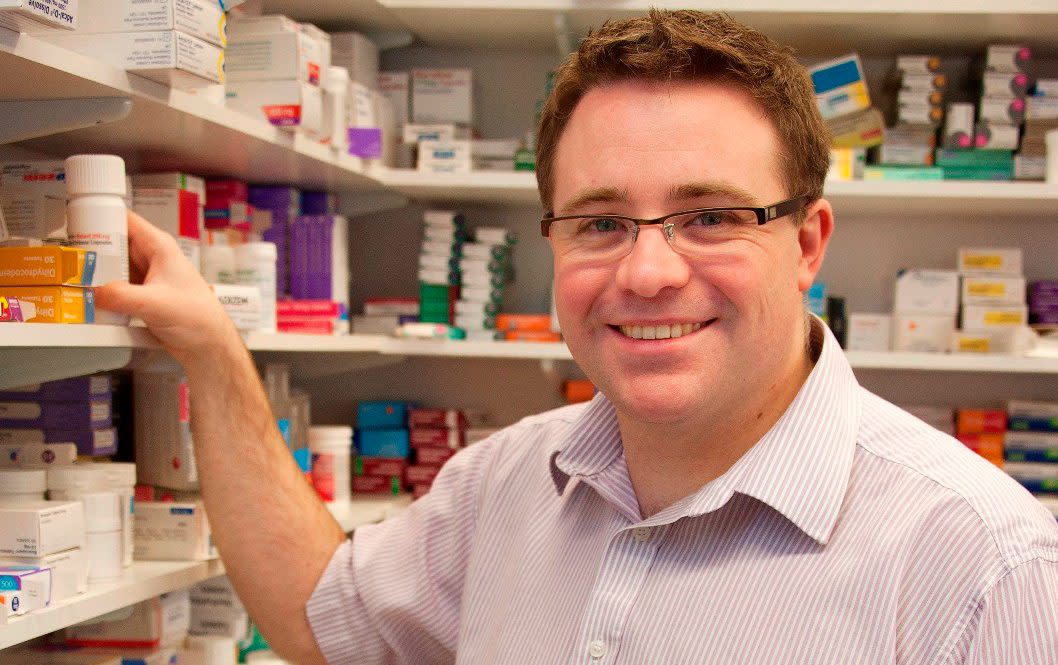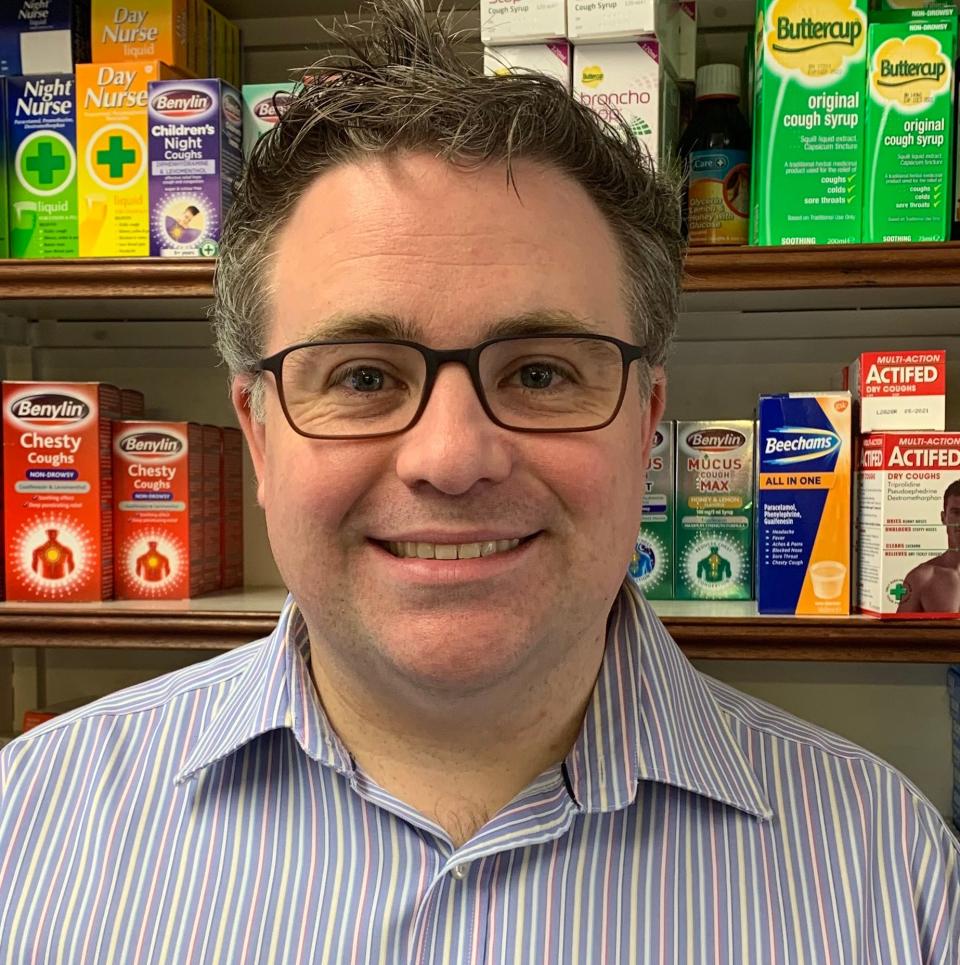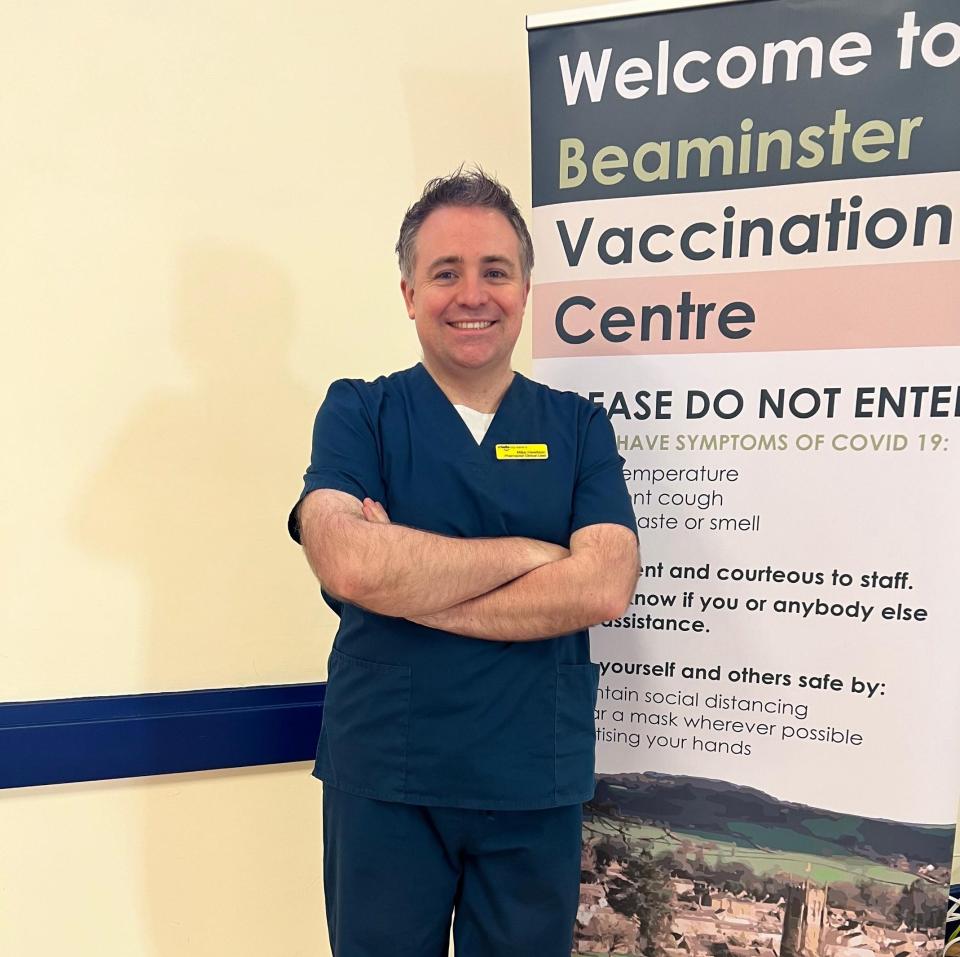'Until a pharmacist is found lying in a pool of blood, no-one will take this abuse seriously'

- Oops!Something went wrong.Please try again later.
Over the past two years, people have gone from clapping us on Thursday nights to threatening physical violence. “You’re useless,” they yell. “Why is there always a queue? Where are my tablets? You don’t know what you’re talking about.”
Pharmacies have always been vulnerable – six years ago, we were robbed of thousands of pounds of cosmetics by a gang who threatened me with a knife. The pandemic and its aftermath have turned things up to boiling point.
But until a pharmacist is found on the floor lying in a pool of blood, no-one will take this abuse seriously.
Which is why a recent report from the Pharmacists’ Defence Association does not surprise me. Some 85 per cent of pharmacists say they, or someone they work with, have experienced verbal or racial abuse in the previous month while at work.
When I first qualified in 2003, pharmacists were long established as trusted members of the community, treated with respect. And I’d like to make clear that the vast majority of our patients still treat us that way. But in my two pharmacies in Sherborne and Beaminster, a growing minority do not. And in the past few years, the situation has deteriorated, as the NHS comes under more strain, and people can’t get GP appointments, so they take it out on us.
It’s also been the case that in the past couple of decades, as funds are stretched, pharmacists have increasingly been used to handle the growing pressure elsewhere in the NHS.
When the pandemic started in 2020, we were required to triple our home medication deliveries in a fortnight. GPs weren’t seeing patients face to face, but pharmacies had to remain open. We didn’t have PPE. At least four pharmacy professionals died – not a close friend, though pharmacy is a small world.

I was certainly nervous for my own health. But we were lucky that no-one even became ill with Covid. I managed to dodge it until catching it at a family wedding last week – but as you can imagine, our teams were worried at being asked to work, already under great stress before we even had to serve our customers.
First of all, in March 2020 there was panic-buying of paracetamol. Because we couldn’t get it, the prices were inflated by the wholesalers – people angrily accused us of profiteering. The biggest issue was lateral flow tests. We were asked to start stocking them by the Government, but we couldn’t get enough kits. There was one supplier for the whole country.
At one point, we were given 5,000 kits for the whole of the South West – where there are 1,400 pharmacies. Then the Government started issuing 16-digit collection codes online. Older people – many of whom did not have smartphones – were shouting that the system was ridiculous. Understandably they were upset. Others would come in demanding kits we didn't have, all with their own priorities: to visit a parent in a care home, a mother to test her child so she could take them back to school. We had no power to magic kits out of thin air, but still we got it in the neck.
We tried to be human and explain; we’d do our best to help. Once, a member of the police force travelled six miles for a test that we promised him that morning. But our 50 tests were gone in an hour, and by the time he got there, we were out. He complained the NHS had led him down the garden path. In the end, we gave him one of our staff test-kits. This sort of thing happened on many occasions.
Then there was the battle over masks. People would come in without them. “I’m not wearing a mask,” they would insist.” You can’t make me.” What were we supposed to do? We’re not the police, we can’t enforce anything.
By May 2020, we were taking 10,000 calls a month. Three of my 20 staff were manning the phones all day – as soon as they hung up, someone else called. Of course, because they’d been waiting for so long, patients were frustrated and annoyed. We had sympathy: but what could we do?
There’s certainly a trend for pharmacies to mop up the failures elsewhere in primary care, and at no point was this worse than during the pandemic. People wanted to be seen by somebody, anybody. We had people coming in with serious conditions such as skin cancer, infections, potential blood clots. Yet we had to send them back to a healthcare system that was already desperately overwhelmed.
In October 2021, we set up a Covid vaccination centre; to date, we have vaccinated over 17,000 people. As you can imagine, there was constant demand: from October to December 2021 I worked 12-hour days, seven days a week. My first day off was Christmas Eve.

While we didn’t exactly get abuse in the clinics – people wanted to be there – we had others begging us in the street for jabs. The emotional pressure was huge and took its toll on family life, I missed my wife and daughter’s birthdays.
If the pandemic was exhausting, the robbery in 2016 was the most stressful single experience. It had a massive impact on me and my staff. Three guys came in in the middle of the day; they started looting the cosmetics and fragrance, filling carrier bags. I tried to stop them. “I’ve got a knife, I’m going to stab you,” one man threatened.
As it happened, he didn’t have a knife, but I wasn’t to know that. A colleague rang the police, but they didn’t send anyone for two hours.
The robbers took several thousands of pounds worth of stock that day. We’ve probably lost £40,000 from separate thefts. One female member of staff, who was pregnant, was understandably distressed, and nervous about coming to work.
Theft was bad before the pandemic, then it stopped. Now people are shoplifting again – especially now they are worried about the cost of living.
And now we have medication shortages. The supply chains are a mess. HRT is a problem, but most of our female customers have been remarkably understanding. But the other day, we had a Parkinson’s patient who was piqued because we didn’t have his meds. This was perfectly understandable – without these vital medicines, it’s difficult for many sufferers to move. In this situation, we do what we can, including borrowing drugs from other pharmacies.
There’s an inherent unfairness in all this. A GP can remove a troublesome patient from their list, but a pharmacy can not. For example, we have a male customer who phones again and again, demanding his medication, sometimes several times a day. He upsets the staff – my team is often in tears – but there is nothing we can do about it. We have an obligation to meet needs, but no tools to protect our staff.
The public’s attitude has changed since the pandemic. We do accept that people are anxious, and of course they need their medications. But many have lost their social skills, are used to getting things on demand, and are very impatient.
Pharmacists need more government support. After the robbery, we were offered token police counselling, but what we need are practical measures to protect ourselves. I’ve done what I can to protect the business. We have CCTV and panic alarms: staff are never left on their own. Our rural towns don’t have public surveillance, which is one of the problems, and why we are a target for thieves.
Pharmacies see around 1.6 million people a day. That’s more than A&E and GPs put together. Our staff are not earning fortunes: far from it. We pick up all the pieces from the rest of the NHS. We need protection and respect. We need something better.
As told to Miranda Levy

